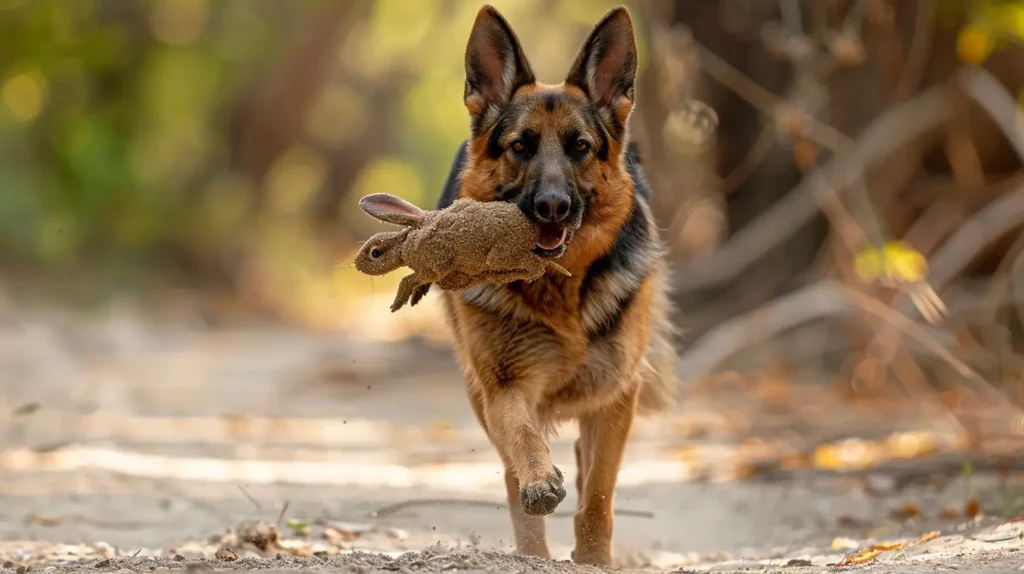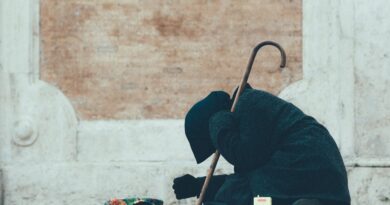Duas famílias vizinhas. Um coelho e um cachorro. Uma amizade improvável. Quando uma tragédia acontece, julgamentos precipitados são feitos e consequências inimagináveis se desenrolam. Nesta história comovente, descubra como um mal-entendido pode levar a uma série de eventos surpreendentes e revelar a verdadeira natureza do amor e da lealdade. “The Art of Judging Others” é um conto que nos faz refletir sobre a tendência humana de tirar conclusões precipitadas sem antes verificar os fatos. Uma história que nos lembra de pensar cuidadosamente sobre as atitudes que tomamos e as lições que a vida nos ensina. Prepare-se para uma jornada emocionante que vai mexer com seu coração e desafiar sua percepção.
| Audio | |
|---|---|
Normal | Slow |
| English Transcript | Tradução |
| The Art of Judging Others. | A arte de julgar os outros. |
| There were two neighbors. | Eram dois vizinhos. |
| One of them bought a rabbit for his children. | Um deles comprou um coelho para os filhos. |
| The children of the other neighbor also wanted a pet. | Os filhos do outro vizinho também quiseram um animal de estimação. |
| So, the parents of this family bought a German Shepherd puppy. | E os pais desta família compraram um filhote de pastor alemão. |
| Then a conversation begins between the two neighbors: | Então começa uma conversa entre os dois vizinhos: |
| "He’s going to eat my rabbit!" | "Ele vai comer o meu coelho!" |
| "No way. My shepherd is a puppy. They will grow up together and become friends!" | "De jeito nenhum. O meu pastor é filhote. Vão crescer juntos e "pegar" amizade!!!" |
| And it seems that the dog owner was right. | E, parece que o dono do cão tinha razão. |
| They grew up together and became friends. | Juntos cresceram e se tornaram amigos. |
| It was normal to see the rabbit in the dog’s yard and vice versa. | Era normal ver o coelho no quintal do cachorro e vice-versa. |
| The children were happy with the two animals. | As crianças, felizes com os dois animais. |
| Then, the rabbit’s owner went on a trip for the weekend with his family. | Eis que o dono do coelho foi viajar no fim de semana com a família. |
| They didn’t take the rabbit. | E não levaram o coelho. |
| On Sunday afternoon, the dog’s owner and his family were having a snack peacefully when, suddenly, the German Shepherd comes in with the rabbit between his teeth, filthy, covered in dirt, and dead. | No domingo, à tarde, o dono do cachorro e a família tomavam um lanche tranquilamente, quando, de repente, entra o pastor alemão com o coelho entre os dentes, imundo, sujo de terra e morto. |
| The dog got a tremendous beating! | O cão levou uma tremenda surra! |
| They almost killed the dog from so much aggression. | Quase mataram o cachorro de tanto agredi-lo. |
| The man said: "The neighbor was right. It could only end like this!" | Dizia o homem: "O vizinho estava certo. Só podia dar nisso!" |
| A few more hours and the neighbors would arrive. | Mais algumas horas e os vizinhos iam chegar. |
| And now?! | E agora?! |
| Everyone looked at each other. | Todos se olhavam. |
| The poor dog, crying outside, licking his wounds. | O cachorro, coitado, chorando lá fora, lambendo os seus ferimentos. |
| "Have you thought about how the children will react?" | "Já pensaram como vão ficar as crianças?" |
| No one knows exactly who had the idea, but it seemed foolproof: "Let’s wash the rabbit, make it clean, then we dry it with the hairdryer and put it back in its house." | Não se sabe exatamente quem teve a idéia, mas parecia infalível: "Vamos lavar o coelho, deixá-lo limpinho, depois a gente seca com o secador e o colocamos na sua casinha." |
| And so they did. | E assim fizeram. |
| They even put perfume on the little animal. | Até perfume colocaram no animalzinho. |
| It looked beautiful. | Ficou lindo. |
| It seemed alive, the children said. | Parecia vivo, diziam as crianças. |
| Shortly after, they heard the neighbors arriving. | Logo depois ouvem os vizinhos chegarem. |
| They noticed the children’s screams. | Notam os gritos das crianças. |
| "They found out!" | "Descobriram!" |
| Not five minutes passed, and the rabbit’s owner came knocking at the door, scared. | Não passaram cinco minutos e o dono do coelho veio bater à porta, assustado. |
| He looked like he had seen a ghost. | Parecia que tinha visto um fantasma. |
| "What happened?! Why that face?" | "O que foi?! Que cara é essa?" |
| "The rabbit, the rabbit…" | "O coelho, o coelho…" |
| "What about the rabbit?" | "O que tem o coelho?" |
| "It died!" | "Morreu!" |
| "Died? This afternoon it seemed so well." | "Morreu? Ainda hoje à tarde parecia tão bem." |
| "It died on Friday!" | "Morreu na sexta-feira!" |
| "On Friday?!" | "Na sexta?!" |
| "Yes. Before we traveled, the children buried it in the backyard, and now it has reappeared!" | "Foi. Antes de viajarmos, as crianças o enterraram no fundo do quintal e agora ele reapareceu!" |
| The story ends here. | A história termina aqui. |
| What happened next is left to the imagination of each of us. | O que aconteceu depois fica para a imaginação de cada um de nós. |
| But the main character of this story, without a doubt, is the dog. | Mas o grande personagem desta história, sem dúvida alguma, é o cachorro. |
| Imagine the poor thing, since Friday looking in vain for his childhood friend. | Imagine o coitado, desde sexta-feira procurando em vão pelo seu amigo de infância. |
| After much sniffing, he discovers his friend rabbit dead and buried. | Depois de muito farejar, descobre seu amigo coelho morto e enterrado. |
| What does he do? | O que faz ele? |
| Probably with a broken heart, he digs up his friend and goes to show his owners, imagining they could bring him back to life. | Provavelmente com o coração partido, desenterra o amigo e vai mostrar para seus donos, imaginando que o fizessem ressuscitar. |
| And humans continue to judge others… | E o ser humano continua julgando os outros… |
| Another lesson we can take from this story is that man has a tendency to judge facts without first verifying what really happened. | A outra lição que podemos tirar desta história é que o homem tem a tendência de julgar os fatos sem antes verificar o que de fato aconteceu. |
| How many times do we draw wrong conclusions from situations and think we are the owners of the truth? | Quantas vezes tiramos conclusões erradas das situações e nos achamos donos da verdade? |
| Stories like this are for us to think carefully about the attitudes we take. | Histórias como essa, são para pensarmos bem nas atitudes que tomamos. |
| Sometimes, we do the same… | Às vezes, fazemos o mesmo… |
| Life has four meanings: to love, to suffer, to fight, and to win. | A vida tem quatro sentidos: amar, sofrer, lutar e vencer. |
| So: LOVE a lot, SUFFER a little, FIGHT a lot, and if possible… ALWAYS WIN!!!" | Então: AME muito, SOFRA pouco, LUTE bastante e se possível…VENÇA sempre!!!" |
Contagem de palavras
A tabela abaixo exibe as palavras encontradas neste texto, bem como o número de vezes em que aparecem.
Veja também: Para que serve esta tabela?
| Freq. | Palavra | Freq. | Palavra | Freq. | Palavra |
|---|---|---|---|---|---|
| 46 | the | 18 | and | 16 | a |
| 14 | it | 12 | to | 12 | rabbit |
| 10 | they | 9 | his | 8 | of |
| 7 | we | 7 | s | 7 | dog |
| 7 | children | 6 | this | 6 | in |
| 6 | he | 5 | with | 5 | what |
| 5 | so | 5 | on | 4 | owner |
| 4 | neighbors | 4 | is | 4 | for |
| 3 | were | 3 | was | 3 | up |
| 3 | two | 3 | then | 3 | that |
| 3 | take | 3 | story | 3 | shepherd |
| 3 | seemed | 3 | looked | 3 | like |
| 3 | has | 3 | happened | 3 | from |
| 3 | friend | 3 | friday | 3 | family |
| 3 | do | 3 | died | 3 | about |
| 2 | without | 2 | win | 2 | will |
| 2 | us | 2 | together | 2 | think |
| 2 | suffer | 2 | said | 2 | right |
| 2 | put | 2 | puppy | 2 | poor |
| 2 | owners | 2 | others | 2 | other |
| 2 | one | 2 | now | 2 | no |
| 2 | neighbor | 2 | my | 2 | much |
| 2 | man | 2 | love | 2 | lot |
| 2 | little | 2 | life | 2 | judge |
| 2 | how | 2 | had | 2 | german |
| 2 | friends | 2 | fight | 2 | each |
| 2 | dead | 2 | could | 2 | but |
| 2 | buried | 2 | bought | 2 | between |
| 2 | back | 2 | at | 2 | are |
| 2 | afternoon | 2 | after | 1 | you |
| 1 | yes | 1 | yard | 1 | wrong |
| 1 | wounds | 1 | would | 1 | why |
| 1 | who | 1 | when | 1 | went |
| 1 | well | 1 | weekend | 1 | way |
| 1 | wash | 1 | wanted | 1 | vice |
| 1 | versa | 1 | verifying | 1 | vain |
| 1 | truth | 1 | trip | 1 | tremendous |
| 1 | traveled | 1 | times | 1 | thought |
| 1 | thing | 1 | there | 1 | them |
| 1 | tendency | 1 | teeth | 1 | t |
| 1 | sunday | 1 | suddenly | 1 | stories |
| 1 | sometimes | 1 | sniffing | 1 | snack |
| 1 | situations | 1 | since | 1 | show |
| 1 | shortly | 1 | seen | 1 | seems |
| 1 | see | 1 | screams | 1 | scared |
| 1 | same | 1 | reappeared | 1 | really |
| 1 | react | 1 | probably | 1 | possible |
| 1 | pet | 1 | perfume | 1 | peacefully |
| 1 | passed | 1 | parents | 1 | outside |
| 1 | out | 1 | only | 1 | noticed |
| 1 | not | 1 | normal | 1 | next |
| 1 | more | 1 | minutes | 1 | meanings |
| 1 | many | 1 | make | 1 | main |
| 1 | looking | 1 | licking | 1 | let |
| 1 | lesson | 1 | left | 1 | knows |
| 1 | knocking | 1 | killed | 1 | judging |
| 1 | its | 1 | imagining | 1 | imagine |
| 1 | imagination | 1 | if | 1 | idea |
| 1 | humans | 1 | house | 1 | hours |
| 1 | him | 1 | here | 1 | heart |
| 1 | heard | 1 | having | 1 | have |
| 1 | happy | 1 | hairdryer | 1 | grow |
| 1 | grew | 1 | got | 1 | going |
| 1 | goes | 1 | ghost | 1 | four |
| 1 | found | 1 | foolproof | 1 | five |
| 1 | first | 1 | filthy | 1 | few |
| 1 | facts | 1 | face | 1 | exactly |
| 1 | everyone | 1 | even | 1 | ends |
| 1 | end | 1 | eat | 1 | dry |
| 1 | draw | 1 | doubt | 1 | door |
| 1 | does | 1 | discovers | 1 | dirt |
| 1 | digs | 1 | didn | 1 | did |
| 1 | crying | 1 | covered | 1 | conversation |
| 1 | continue | 1 | conclusions | 1 | comes |
| 1 | clean | 1 | childhood | 1 | character |
| 1 | carefully | 1 | can | 1 | came |
| 1 | broken | 1 | bring | 1 | begins |
| 1 | before | 1 | become | 1 | became |
| 1 | beautiful | 1 | beating | 1 | backyard |
| 1 | attitudes | 1 | art | 1 | arriving |
| 1 | arrive | 1 | another | 1 | animals |
| 1 | animal | 1 | always | 1 | also |
| 1 | almost | 1 | alive | 1 | aggression |











Excelente